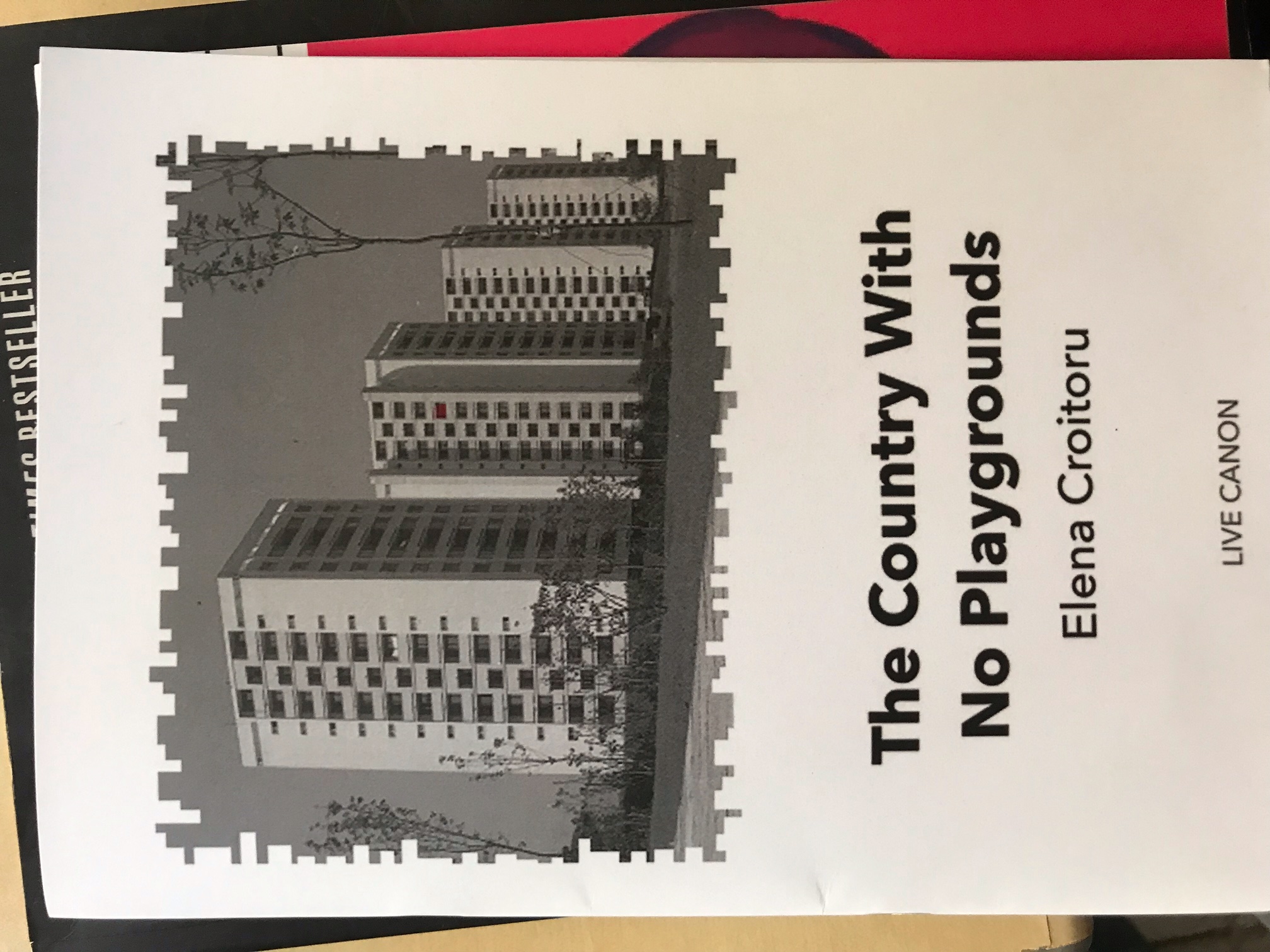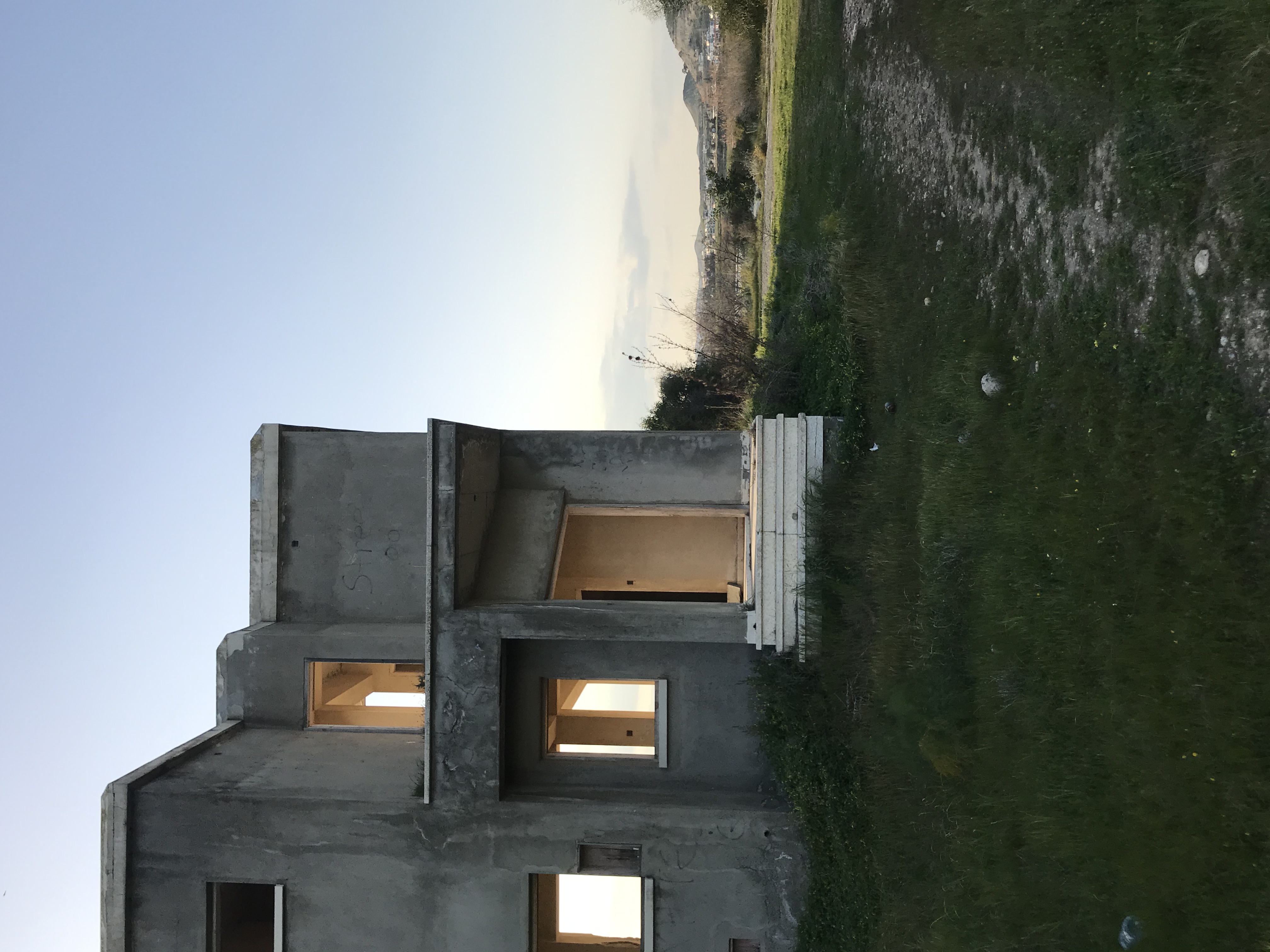Published August 8th, 2022
Review
by Ilias Tsagas
Elena Croitoru is a British-Romanian writer, holding a Master’s Degree in Creative Writing from the University of Cambridge. The Country With No Playgrounds is her first poetry collection, featuring eighteen poems, and it won the Live Canon 2021 Pamphlet Competition judged by British writer Hannah Lowe. Live Canon Poetry Press published the winning collection in 2021. Croitoru’s first novel was shortlisted for the Wilbur Smith Prize - Best Unpublished Novel. She has won the Charles Causley Poetry Prize, the South Bank Poetry Prize and been shortlisted or commended in major British poetry competitions.
The Country With No Playgrounds is based on the poet’s experience growing up in Romania during Ceaușescu’s regime and the post-communist depression. Apart from the poet, Croitoru’s parents also feature widely in the chapbook, whose poems have won, been shortlisted, or been commended in prestigious poetry competitions, sometimes the same poem more than once.
Before I got my hands on this book, I wondered what made Croitoru’s poems so appealing to a great number of judges, often stemming from diverse poetic styles. I found answers to my question way before I read the pamphlet in full, each new poem only offering additional evidence.
All poems provide imagery and language that attract the reader at once; they do not simply narrate a story or a scene, but they also transform the narrative by complementing it with intelligent and emotional detail.
In the opening poem, for example, which narrates the visit to an unfinished building with “its graffiti erased before it was written,” the poet explains that “its three windowless walls wrapped around us / in an embrace that always stayed the same.” This is the sort of intelligent and emotional detail populating all eighteen poems throughout.

Hospital View narrates the poet’s visit in the hospital to see her father, who after four operations is lying on his deathbed, a living skeleton. “By then he had more memories than flesh,” Elena writes in the poem. Perhaps less emotional but equally intelligent is Croitoru’s description of the hospital surroundings. Although communism had ended many years before, “I still saw its geometric ghost / spread over the tower blocks beyond / the hospital’s parking lot.” Readers who have visited any of Europe’s former Eastern Communist countries will often be reminded of their visiting similar landscapes.
I would argue this is the second main reason why this collection of poetry appeals to readers of various backgrounds. The pamphlet reads as a journey seen through the poet’s childhood eyes to Romania and to the depths of living under the communist regime.
In terms of its genre, this collection comprises narrative poems rooted in the poet’s lived experiences. However, although the poems do not break away from their narrative, the plethora of emotional detail and intelligent descriptions give it a quality that flirts with magic realism.
An example of such undercurrents of magic can be found in the ending poem Border. The poem describes the exodus of mother and daughter on a river boat made of ice, whose bottom is thinning “becoming clearer, until it is like glass.”
With regards to the writing form, the poet has attempted a few times to experiment with the layout of the poems on the page and this happens specifically in the following three poems: Sinbad, The Stories My Father Told Me and Tower Block Twelve. Each of the three poems narrates parallel stories simultaneously. The Stories My Father Told Me, for example, present the stories of three dervishes alongside the story of the poet’s father. The stories (of the dervishes and the father) are also presented in box-like stanzas that make the poem visually inviting.

...hide inside the unfinished body of a building,
its graffiti erased before it was written,
its three windowless walls wrapped around us
in an embrace that always stayed the same.
A similar technique is also used in Tower Block Twelve, with each ‘stanza-box’ detailing scenes that take place in the block’s apartments. The poem’s opening scene says: “Tonight the piano on the fifth floor / falls silent as the militia dismantle it / to search for hidden notes.” Croitoru’s emotionally intelligent details never fail to make the reader pause and admire the verse.
In fact, this is what I enjoyed most while reading this collection. Croitoru’s verse has a way to innovate and surprise even when using a traditional form. This is because the language is never short of surprises and twists. Whenever I thought I sense where a poem leads me, a new line quickly derailed my reading of the poem, transporting me to new emotional landscapes that left me in constant awe. After reading this work, I felt “I grew, not up but sideways, / building a new century city in my mind.”
Supported by:


Comments on "Making Poetry out of Wounds — A review of "The Country with no Playgrounds" by Elena Croitoru"
Please log in to submit a comment.
Login